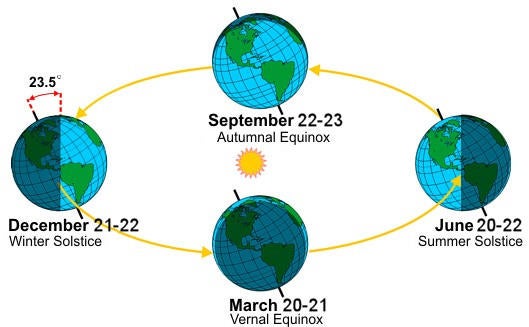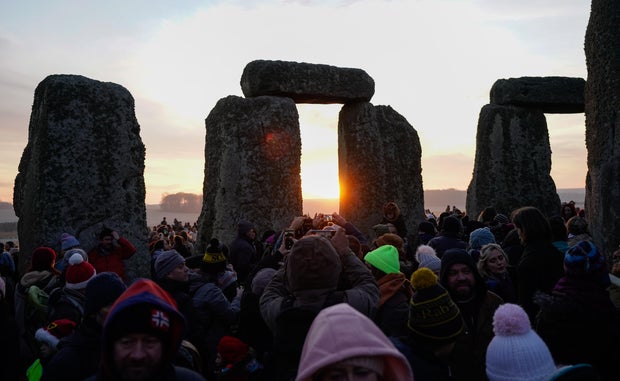CBS News
15 high-yield savings accounts that beat inflation right now (up to 5.55% APY)

Getty Images
There’s no question that the effects of persistent inflation are impacting many people’s finances right now. And while there has been a lot of headway made since inflation hit its peak in June 2022, the latest inflation report, released this week, shows that we aren’t out of the woods just yet. According to the report, the inflation rate hit 3.5% in March — which is an uptick from a rate of 3.2% in February and still higher than the Federal Reserve’s 2% target inflation rate.
In other words, it looks like inflation will continue to have a detrimental effect on the economy, at least for the near future. But while we may face higher prices on groceries, gas and other goods for a while longer, the good news is that there are ways to help your money grow and outpace inflation. All it takes is putting your money in the right account.
And while there are a few different options to consider, including certificates of deposit (CDs), one of the more flexible, accessible options is a high-yield savings account. By putting your money in the right high-yield savings account today, you can earn enough interest to stay ahead of inflationary losses — and can still access your funds if and when you need them. But the key is to find an account with an annual percentage yield (APY) that outpaces today’s inflation rate. And, a good place to start your search is with the accounts listed below.
Compare today’s top high-yield savings account options online now.
15 high-yield savings accounts that beat inflation right now (up to 5.55% APY)
If you’re looking for a high-yield savings account with a rate that can beat inflation, here are some of today’s best options to consider:
- My Banking Direct — 5.55% APY: A $500 minimum opening deposit is required to open this account; a minimum balance of $1 is required to earn the stated APY
- Poppy Bank — 5.50% APY: A $1,000 minimum opening deposit is required to open this account; a minimum balance of $1,000 is required to earn the stated APY
- Ivy Bank — 5.30% APY: A $2,500 minimum opening deposit is required to open this account; a minimum balance of $2,500 is required to earn the stated APY
- Cloudbank 24/7 — 5.26% APY: A $1 minimum opening deposit is required to open this account; a minimum balance of $1 is required to earn the stated APY
- Evergreen Bank Group — 5.25% APY: A $100 minimum opening deposit is required to open this account; there is no minimum balance required to earn the stated APY
- Newtek Bank — 5.25% APY: There is no minimum opening deposit required to open this account; there is no minimum balance required to earn the stated APY
- UFB Direct — 5.25% APY: There is no minimum opening deposit required to open this account; there is no minimum balance required to earn the stated APY
- Western Alliance Bank — 5.24% APY: A $1 minimum opening deposit is required to open this account; a minimum balance of $1 is required to earn the stated APY
- Upgrade — 5.21% APY: There is no minimum opening deposit required to open this account; a minimum balance of $1,000 is required to earn the stated APY
- Customers Bank — 5.16% APY: A $1 minimum opening deposit is required to open this account; a minimum balance of $1 is required to earn the stated APY
- Bread Savings — 5.15% APY: A $100 minimum opening deposit is required to open this account; a minimum balance of $100 is required to earn the stated APY
- RBMAX — 5.15% APY: A $10 minimum opening deposit is required to open this account; there is no minimum balance required to earn the stated APY
- EverBank — 5.15% APY: There is no minimum opening deposit required to open this account; there is no minimum balance required to earn the stated APY
- Popular Direct — 5.15% APY: A $100 minimum opening deposit is required to open this account; there is no minimum balance required to earn the stated APY
- Elevault — 5.13% APY: There is no minimum opening deposit required to open this account; there is no minimum balance required to earn the stated APY
Learn more about the top savings rates you could earn with the right account.
The bottom line
There’s no telling when things will be back on track in terms of inflation. Considering the recent uptick in inflation, it could be a while before the Federal Reserve can get today’s inflationary environment under control. But while the effects of inflation can cause the value of your savings to dwindle, you can counteract those losses by putting your money in the right high-yield savings account. Before you open one, though, just make sure to do your homework and ensure that you can meet the minimum deposit and balance requirements to maximize the returns on your money.
CBS News
Social Security Fairness Act passes U.S. Senate

Legislation to expand Social Security benefits to millions of Americans passed the U.S. Senate early Saturday and is now headed to the desk of President Joe Biden, who is expected to sign the measure into law.
Senators voted 76-20 for the Social Security Fairness Act, which would eliminate two federal policies that prevent nearly 3 million people, including police officers, firefighters, postal workers, teachers and others with a public pension, from collecting their full Social Security benefits. The legislation has been decades in the making, as the Senate held its first hearings into the policies in 2003.
“The Senate finally corrects a 50-year mistake,” proclaimed Senate Majority Leader Chuck Schumer, a Democrat from New York, after senators approved the legislation at 12:15 a.m. Saturday.
The bill’s passage is “a monumental victory for millions of public service workers who have been denied the full benefits they’ve rightfully earned,” said Shannon Benton, executive director for the Senior Citizens League, which advocates for retirees and which has long pushed for the expansion of Social Security benefits. “This legislation finally restores fairness to the system and ensures the hard work of teachers, first responders and countless public employees is truly recognized.”
The vote came down to the wire, as the Senate looked to wrap up its current session. Senators rejected four amendments and a budgetary point of order late Friday night that would have derailed the measure, given the small window of time left to pass it.
Vice President-elect JD Vance of Ohio was among the 24 Republican senators to join 49 Democrats to advance the measure in an initial procedural vote that took place Wednesday.
“Social Security is a bedrock of our middle class. You pay into it for 40 quarters, you earned it, it should be there when you retire,” Ohio Senator Sherrod Brown, a Democrat who lost his seat in the November election, told the chamber ahead of Wednesday’s vote. “All these workers are asking for is for what they earned.”
What is the Social Security Fairness Act?
The Social Security Fairness Act would repeal two federal policies — the Windfall Elimination Provision (WEP) and the Government Pension Offset (GPO) — that reduce Social Security payments to nearly 3 million retirees.
That includes those who also collect pensions from state and federal jobs that aren’t covered by Social Security, including teachers, police officers and U.S. postal workers. The bill would also end a second provision that reduces Social Security benefits for those workers’ surviving spouses and family members. The WEP impacts about 2 million Social Security beneficiaries and the GPO nearly 800,000 retirees.
The measure, which passed the House in November, had 62 cosponsors when it was introduced in the Senate last year. Yet the bill’s bipartisan support eroded in recent days, with some Republican lawmakers voicing doubts due to its cost. According to the Congressional Budget Office, the proposed legislation would add a projected $195 billion to federal deficits over a decade.
Without Senate approval, the bill’s fate would have ended with the current session of Congress and would have needed to be re-introduced in the next Congress.
CBS News
12/20: CBS Evening News – CBS News

Watch CBS News
Be the first to know
Get browser notifications for breaking news, live events, and exclusive reporting.
CBS News
Saturday is the winter solstice and 2024’s shortest day. Here’s what to know about the official start of winter.

The 2024 winter solstice, the shortest day of the year, happens on Saturday, Dec. 21, in the Northern Hemisphere. The celestial event signifies the first day of winter, astronomically.
What is the winter solstice?
The winter solstice is the day each year that has the shortest period of daylight between sunrise and sunset, and therefore the longest night. It happens when the sun is directly above the Tropic of Capricorn, a line of latitude that circles the globe south of the equator, the National Weather Service explains.
The farther north you are, the shorter the day will be, and in the Arctic Circle, the sun won’t rise at all.
How is the day of the winter solstice determined?
The winter solstice occurs because of the Earth’s tilt as it rotates around the sun.
When the Northern Hemisphere tilts away from the sun, the nights last longer. The longest night happens on the solstice because the hemisphere is in its furthest position from the sun. That occurs each year on Dec. 21 or 22.
This year, it falls on Dec. 21 at 4:21 a.m ET, to be precise.
On the summer solstice, when the northern tilt is closest to the sun, we have the longest day, usually June 20 or 21.
National Weather Service
The solstices are not always exactly on the 21st every year because the earth’s rotation around the sun is 365.25 days, instead of 365 even.
Will days start getting longer after the winter solstice?
Yes. Each day after the solstice, we get one minute more of sunlight. It doesn’t sound like much, but after just two months, or around 60 days, we’ll be seeing about an hour more of sunlight.
When will winter officially be over in 2025?
The meteorological winter ends on March 20, 2025. Then, spring will last until June 20, when the summer solstice arrives.
How is the winter solstice celebrated around the world?
Nations and cultures around the world have celebrated the solstice since ancient times with varying rituals and traditions. The influence of those solstice traditions can still be seen in our celebrations of holidays like Christmas and Hanukkah, Britannica notes.
The ancient Roman Saturnalia festival celebrated the end of the planting season and has close ties with modern-day Christmas. It honored Saturn, the god of harvest and farming. The multiple-day affair had lots of food, games and celebrations. Presents were given to children and the poor, and slaves were allowed to stop working.
Gatherings are held every year at Stonehenge, a monumental circle of massive stones in England that dates back about 5,000 years. The origins of Stonehenge are shrouded in mystery, but it was built to align with the sun on solstice days.
Andrew Matthews/PA Images via Getty Images
The Hopi, a Native American tribe in the northern Arizona area, celebrate the winter solstice with dancing, purification and sometimes gift-giving. A sacred ritual known as the Soyal Ceremony marks the annual milestone.
In Peru, people honor the return of the sun god on the winter solstice. The ancient tradition would be to hold sacrificial ceremonies, but today, people hold mock sacrifices to celebrate. Because Peru is in the Southern Hemisphere, their winter solstice happens in June, when the Northern Hemisphere is marking its summer solstice.
Scandinavia celebrates St. Lucia’s Day, a festival of lights.
The “arrival of winter,” or Dong Zhi, is a Chinese festival where family gathers to celebrate the year so far. Traditional foods include tang yuan, sweet rice balls with a black sesame filling. It’s believed to have its origins in post-harvest celebrations.
Researchers stationed in in Antarctica even have their own traditions, which may include an icy plunge into the polar waters. They celebrate “midwinter” with festive meals, movies and sometimes homemade gifts.




